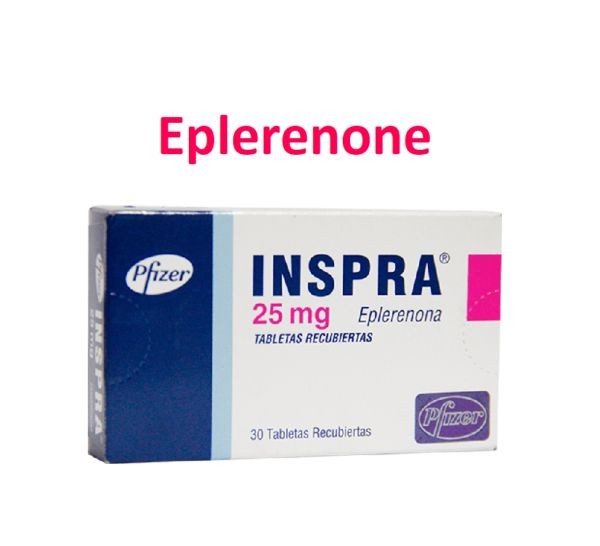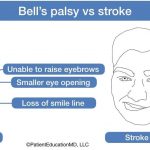
Contents
eplerenone
Eplerenone is a medication used to treat congestive heart failure in patients who have had a heart attack (myocardial infarction) and to lower blood pressure in patients with high blood pressure (hypertension). It is a selective aldosterone antagonist that reduces blood pressure by blocking the activity of aldosterone, a hormone that regulates blood pressure.
Aldosterone increases blood pressure by increasing water and sodium retention in the body. It binds to receptors located in the kidneys, brain, heart, and blood vessels, causing sodium and water absorption and excretion of potassium. Hypertension increases the risk for cardiovascular adverse events and can lead to myocardial fibrosis, especially following a heart attack.
Eplerenone binds to the receptors and prevents aldosterone from stimulating them, reducing blood pressure and sodium/water retention. This helps reduce the risk of congestive failure, myocardial fibrosis, and vascular fibrosis, improving survival in patients who have had a heart attack.
The uses of eplerenone include:
- Management of chronic hypertension
- Congestive heart failure (CHF) after a heart attack
- Heart failure with a preserved ejection fraction
- Heart failure with a reduced ejection fraction
- Primary hyperaldosteronism
Warnings
- Do not use eplerenone in patients with hypersensitivity to any of the components in the formulation.
- Do not use in patients with:
- Serum potassium over 5.5 mEq/L at initiation
- Creatinine clearance 30 mL/minute or lower
- Concomitant administration of strong CYP3A inhibitors
IMAGES
What are the side effects of eplerenone?
Common side effects of eplerenone include:
- Hyperkalemia
- Increase in serum creatinine
- Renal insufficiency
- Chest pain associated with coronary artery disease (angina pectoris)
- Myocardial infarction
- Headache
- Dizziness
- Increased gamma-glutamyl transferase
- Abnormal breast tissue growth in men (gynecomastia)
- Abnormal vaginal hemorrhage
- Skin rash
- Swelling beneath the skin and mucous membranes (angioedema)
Call your doctor immediately if you experience any of the following symptoms or serious side effects while using this drug:
- Serious heart symptoms include fast or pounding heartbeats, fluttering in your chest, shortness of breath, and sudden dizziness;
- Severe headache, confusion, slurred speech, severe weakness, vomiting, loss of coordination, feeling unsteady;
- Severe nervous system reaction with very stiff muscles, high fever, sweating, confusion, fast or uneven heartbeats, tremors, and feeling like you might pass out; or
- Serious eye symptoms include blurred vision, tunnel vision, eye pain or swelling, or seeing halos around lights.
This is not a complete list of all side effects or adverse reactions that may occur from the use of this drug. Call your doctor for medical advice about serious side effects or adverse reactions. You may also report side effects or health problems to the FDA at 1-800-FDA-1088.
What are the dosages of eplerenone?
Tablet
Adult:
Hypertension (HTN)
- Initial 50 mg orally once daily; may increase to 50 mg orally every 12 hours; may take up to four weeks for a full therapeutic response; hyperkalemia may occur with doses above 100 mg/day
Heart Failure Post MI
- Initial 25 mg orally once daily; may titrate to a maximum of 50 mg once daily within 4 weeks as tolerated
- Dose adjustments may be required based on potassium levels
- Contraindicated if creatinine clearance (CrCl) is below 50 mL/minute or serum creatinine above 2 mg/dL in males or above 1.8 mg/dL in females
- Dose adjustment not necessary
Dosing considerations
- In post-MI CHF patients taking a moderate CYP3A inhibitor, do not exceed 25 mg once daily; in patients with hypertension taking a moderate CYP3A inhibitor, initiate at 25 mg once daily; for inadequate blood pressure response, dosing may be increased to a maximum of 25 mg twice daily
Other Indications and Uses
- Improving survival of stable patients with LV systolic dysfunction (LVEF 40% or less) and CHF after an acute myocardial infarction (MI)
Geriatric:
Hypertension
- Initial 50 mg orally once daily; may increase to 50 mg orally every 12 hours; may take up to four weeks for a full therapeutic response; hyperkalemia may occur with doses above 100 mg/day
Heart Failure Post MI
- Initial 25 mg orally once daily; may titrate to a maximum of 50 mg once daily within 4 weeks as tolerated
- Dose adjustments may be required based on potassium levels
Pediatric:
- Safety and efficacy not established
Overdose
- There has been no report of a human overdose of eplerenone. Animal studies show eplerenone overdose can cause salivation, vomiting, tremor, sedation, and convulsions.
- Overdose in humans is likely to cause hypotension and hyperkalemia. Treatment for an overdose may include activated charcoal to eliminate undigested drugs and appropriate treatment for hypotension and hyperkalemia.
What drugs interact with eplerenone?
Inform your doctor of all medications you are currently taking, who can advise you on any possible drug interactions. Never begin taking, suddenly discontinue, or change the dosage of any medication without your doctor’s recommendation.
- Severe interactions of eplerenone include: chloramphenicol, cobicistat, itraconazole, lopinavir, mifepristone, nefazodone, nirmatrelvir/ritonavir, saquinavir, and tipranavir
- Other interactions include: abametapir, amiloride, apalutamide, diltiazem, drospirenone, enzalutamide, fexinidazole, idelalisib, isoniazid, ketoconazole, levoketoconazole, lofexidine, potassium acid phosphate, potassium chloride, potassium phosphates, spironolactone, triamterene, tucatinib, and voxelotor
The drug interactions listed above are not all of the possible interactions or adverse effects. For more information on drug interactions, visit the RxList Drug Interaction Checker.
Always tell your doctor, pharmacist, or health care provider about all medications you use, including the dosage for each, and keep a list of this information. Check with your doctor or health care provider if you have any questions about the medication.
Pregnancy and breastfeeding
- There are no adequate and well-controlled studies on the safety of eplerenone use in pregnant women. Eplerenone should be used in pregnancy only if potential maternal benefits outweigh the potential risk to the fetus.
- There is no information on the presence of eplerenone in human breastmilk. However, it is present in animal milk, and likely excreted in human breastmilk as well. Decision should be made to discontinue the drug or nursing because of the unknown potential for adverse reactions in the breastfed infant.
What else should I know about eplerenone?
- Take eplerenone exactly as prescribed.
- Do not take potassium supplements or potassium-containing drugs without first checking with your physician.
- Contact your physician if you experience symptoms such as dizziness, diarrhea, vomiting, rapid or irregular heartbeat, lower extremity edema, or difficulty breathing.
- Store safely out of reach of children.
- In case of overdose, seek medical help or contact Poison Control.
By clicking "Submit," I agree to the MedicineNet Terms and Conditions and Privacy Policy. I also agree to receive emails from MedicineNet and I understand that I may opt out of MedicineNet subscriptions at any time.
Summary
Eplerenone is a medication used to treat congestive heart failure in patients who have had a heart attack and to lower blood pressure in patients with high blood pressure. It is a selective aldosterone antagonist that reduces blood pressure. Common side effects of eplerenone include hyperkalemia, increase in serum creatinine, renal insufficiency, chest pain, myocardial infarction, headache, dizziness, increased gamma-glutamyl transferase, abnormal breast tissue growth in men, abnormal vaginal hemorrhage, skin rash, and swelling beneath the skin and mucous membranes.


